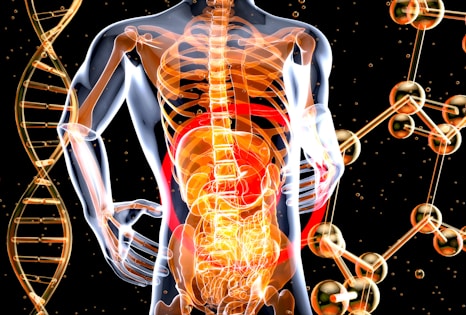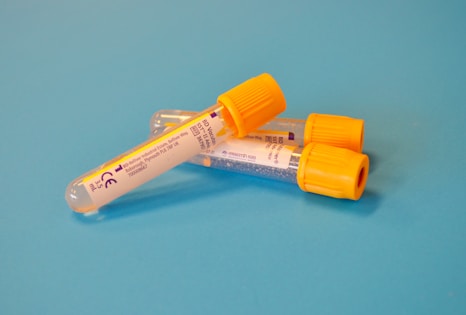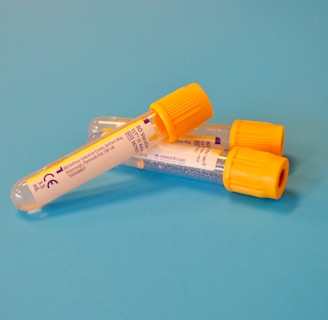Cannabis May Not Be For Everyone: Contraindications and Risks
Cannabis is generally safe, but there are several groups of people with various risk-markers who should not use cannabis.
CANNABIS HEALTH
11/3/202317 min read


1. Women who are pregnant, breastfeeding, or may become pregnant due to being sexually active and not using reliable contraception.
Pregnant and breastfeeding women are strongly advised against using cannabis. The active compounds in cannabis, such as THC (tetrahydrocannabinol), can cross the placenta and reach the developing fetus or be passed through breast milk. This can potentially have negative effects on the baby's brain and body development and health.
Use of cannabis while pregnant can cause lower birth weight, lower alertness, sleep disturbances, and slower growth. There is also some suggestion that cannabis can increase the chances of a stillbirth. Once the child reaches school age, they can have difficulties with attention and learning and may be more hyperactive, impulsive, or likely to develop anxiety or depression.
Cannabis has gained increasing popularity in recent years for its potential therapeutic benefits. However, it is important to note that cannabis is not suitable for everyone. Despite being generally regarded as safe, certain individuals should avoid using cannabis due to contraindications and potential risks. Some individuals may be able to use it by exercising extreme caution, and in some cases it might simply be necessary to make sure any cannabis used is low in THC or is only used in small amounts. In this article, we will explore who should not use cannabis or may need to be more cautious, and the reasons behind it.
The first groups of individuals have been flagged as HIGH RISK. Cannabis use should be avoided entirely by those in these groups.
Conclusion
While cannabis may offer potential benefits for certain individuals, it is not suitable for everyone. Pregnant and breastfeeding women, individuals with a history of psychiatric disorders, those with cardiovascular conditions, children and adolescents, individuals with a history of substance abuse, and those with respiratory issues should avoid using cannabis due to contraindications and potential risks. It is always advisable to consult with a healthcare professional before considering cannabis use, especially if you fall into any of these categories.
3. Children and youth under 18 years of age who do not have a significant medical or mental health condition such as cancer, pediatric seizures, or autism.
Cannabis use among children and adolescents is strongly discouraged. The human brain does not finish developing until the age of 25, and the developing brain is particularly vulnerable to the effects of cannabis. Early exposure may lead to long-term cognitive impairments and an increased risk of mental health disorders.
Using cannabis in formative years can change the structure of the brain as it develops and regular use can cause problems with attention span, memory, learning, coordination, problem-solving and other mental and emotional functions including being more prone to anxiety and depression. Some issues may be reversed once the cannabis use stops, while others may be lasting. Those who start using cannabis in their teens also have a higher chance of becoming dependent on cannabis, and may encounter problems with school and their social life. Lastly, early and frequent use increases the risk of experiencing psychotic symptoms or developing schizophrenia, and that risk increases further if there is already a personal or family history of either.
While there are some situations where pediatric use of cannabis is warranted, such as certain types of cancer or debilitating epileptic seizures, in general, cannabis should be avoided by anyone under 18. If a child under 18 with a serious health condition may benefit from cannabis, it should be used only under direct supervision of a medical professional, and only where the risks of not using cannabis outweigh the risks of using it. For more information on the use of cannabis in children with Autism Spectrum Disorder (ASD), please click HERE.


2. Couples who are trying to conceive.
There is ongoing research to understand the potential effects of cannabis on fertility. Some studies suggest that regular cannabis use may have a negative impact on reproductive health. The active compounds in cannabis, such as THC, can interfere with the normal functioning of the reproductive system, making it more difficult to conceive.
Cannabis is linked with infertility in both men and women. In males, it affects sperm count, size, and shape, as well as motility. In women, it can lead to hormonal imbalances, disrupting ovulation and causing other menstrual irregularities which affect the ability of an embryo to implant itself and develop in the uterus.


4. Individuals with a history of a psychiatric disorder.
This would include a personal or family history that includes psychosis (psychotic/pre-psychotic/borderline psychotic), bipolar disorder, schizophrenia, delusions, hallucinations, or other psychiatric or personality disorders).
People with psychiatric disorders should avoid using cannabis due to its potential negative impact on their mental health. While cannabis is often touted for its medicinal properties, it can have adverse effects on individuals with psychiatric disorders. Studies have shown that cannabis use can exacerbate symptoms and increase the risk of psychosis in those who are already predisposed to it. Heavy (regular, long-term) use of cannabis may trigger a psychotic reaction, and while cannabis does not directly cause schizophrenia (and may even be beneficial in some cases), heavy use can lead to a higher risk of developing the illness.
Additionally, cannabis can interfere with the effectiveness of psychiatric medications, leading to potential complications in treatment. It is crucial for individuals with psychiatric disorders to consult with their healthcare providers before considering cannabis use to ensure the best course of action for their mental well-being.
Note: Psychosis and schizophrenia are outside the training and qualifications of cannabis coaches, cannabis nurses, or other cannabis professionals. In rare situations where cannabis use is warranted in someone with a psychiatric disorder, it requires careful monitoring by a qualified and experienced individual who specializes in clinical mental illness.




The following groups of individuals have been flagged as MODERATE RISK. Cannabis use is strongly discouraged, but should a person in these groups choose to use cannabis, they must exercise extreme caution, work with a professional, use the minimum amount possible, and use care in which products they consume.
1. Those with cardiovascular conditions.
Individuals with cardiovascular conditions or risk factors for cardiovascular disease, including hypertension (high blood pressure), hypotension (low blood pressure), syncope (loss of consciousness), tachycardia (rapid heart rate), or a history of heart attacks, should exercise caution when it comes to cannabis use.
Cannabis can temporarily increase heart rate and blood pressure, which can put additional strain on the cardiovascular system and may pose risks for individuals with pre-existing cardiovascular issues. Cannabis use can also lead to the dilation of blood vessels, causing a drop in blood pressure. This sudden fluctuation in blood pressure can potentially be dangerous for those with cardiovascular issues, as it may result in adverse effects such as dizziness, lightheadedness, or even fainting. Cannabis may also have an adverse reaction with heart medications. Therefore, individuals with cardiovascular disease must consult with their healthcare provider before using cannabis, as they can provide personalized advice and guidance based on their specific medical history and condition.


2. Those with respiratory issues OR heavy smokers.
Individuals with respiratory issues, such as asthma or chronic obstructive pulmonary disease (COPD), should be cautious when using cannabis. Smoking cannabis can irritate the lungs and worsen respiratory symptoms, and this effect is compounded if the individual also smokes tobacco.
Cannabis smoke contains many of the same harmful chemicals and toxins found in tobacco smoke, such as carbon monoxide, ammonia, and tar. While cannabis is unlikely to cause lung cancer (researchers still don't have a definitive explanation of why), these substances can still irritate the respiratory system and lead to a range of respiratory problems, including bronchitis, chronic cough, and wheezing. In addition, smoking cannabis can also increase the risk of developing lung infections, such as pneumonia. For individuals with pre-existing respiratory conditions, such as asthma or chronic obstructive pulmonary disease (COPD), using cannabis can further exacerbate their symptoms and make it even more difficult to breathe. Therefore, using ingestible and topical cannabis products is recommended as an alternative to smoking and vaping.


4. People using certain medications.
Cannabis may interact with several drugs, particularly sedatives or psychoactive drugs, such as sleeping pills (prescribed or OTC), tranquilizers (ex. benzodiazepines), antidepressants, opioids and other pain medications, allergy and cold medications, or anti-seizure medications (especially clobazam or valproate). It can also interact with other types of drugs or supplements including St. John's Wort and some heart medications, antibiotic and antifungal medications, HIV/AIDS antiretroviral drugs, and drugs used for treating acid reflux. If taking a medication that indicates it should not be taken with grapefruit juice, it should not be taken with cannabis either.
Cannabis can affect breathing, blood pressure, and heart rate, so drug interactions with existing health conditions can be lethal when cannabis is used, and it can also affect how other medications are absorbed in the body, making them either less effective or increasing their concentration to an unsafe level.
Cannabis can often be used in conjunction with other medications without any serious adverse consequences beyond heightening side effects (ex. if your pain meds make you drowsy, using sedating strains of cannabis can make you extra drowsy). However, there are some medications that should not be taken at the same time as cannabis, and individuals using medications for certain health conditions should not use cannabis at all, so it is important to always check with your healthcare provider or pharmacist to determine if there may be a potential interaction between the prescription and non-prescription drugs you are using, and use caution with any herbal products.
3. People who have a personal or family history of mood or anxiety disorders.
People with a history of mood or anxiety disorders may find cannabis risky due to its potential to exacerbate their symptoms. Cannabis can affect the brain and alter the balance of neurotransmitters, which are involved in regulating mood and anxiety. For individuals with pre-existing mood or anxiety disorders, this can lead to an increase in symptoms such as depression, paranoia, or panic attacks. Furthermore, cannabis use can interfere with prescribed medications for these disorders, potentially reducing their effectiveness. It is important for individuals with a history of mood or anxiety disorders to consult with their healthcare providers before using cannabis, as they can provide personalized guidance and help assess the potential risks and benefits, and will need to monitor the individual closely while they using cannabis.






5. Those with certain diseases, such as liver or kidney/renal disease (including hepatitis C).
People with liver disease should be careful when using cannabis due to the potential impact it can have on their condition. Cannabis contains various compounds, including THC and CBD, which can affect the liver in several ways. One concern is that cannabis use may increase liver enzyme levels, indicating liver inflammation or damage. This can be particularly harmful for individuals with existing liver disease, as it can worsen their condition. Additionally, cannabis can interact with medications commonly prescribed for liver disease, potentially leading to adverse effects or reduced effectiveness. Also of importance is that cannabis is metabolized in the liver. If your liver function is impaired, it can affect how cannabis is processed in your body, altering its dose and effects.
People with kidney/renal disease should exercise caution when using cannabis, as heart rate and blood pressure play a vital role in the functioning of the kidneys. Cannabis can cause changes to heart rate and blood pressure, which can put a strain on the already compromised kidneys. The kidneys are responsible for filtering waste from the blood and regulating the body's fluid balance. When the heart rate and blood pressure are high, it can lead to increased strain on the blood vessels in the kidneys. This can result in damage to the small blood vessels and impair the kidney's ability to effectively filter waste from the blood. Additionally, high blood pressure can cause the walls of the blood vessels in the kidneys to thicken, further reducing their efficiency. Conversely, low heart rate or blood pressure can also negatively impact kidney function. Inadequate blood flow to the kidneys can result in reduced filtration and impaired waste removal. Therefore, maintaining a healthy heart rate and blood pressure is crucial for optimal kidney function.
As with liver disease, cannabis can interact with certain medications that are commonly prescribed to patients with kidney conditions, leading to undesirable side effects or reduced effectiveness of the medications.
6. Individuals with a history of substance abuse, drug dependencies, or addiction.
These individuals should avoid using cannabis, as cannabis can be habit-forming and may trigger a relapse in individuals in recovery. Using cannabis for its therapeutic properties entails regular and long-term use of a controlled substance, and while many people try to argue that cannabis is non-addictive, it does have the potential for harm if abused and does carry the risk of a psychological addiction, if not a physical one, and the risk is significantly increased in those who are already prone to abuse or addiction.
The paradox is that while cannabis can be problematic in people predisposed to abuse or addiction, it has also shown promising potential in helping individuals beat opioid addictions. Research suggests that cannabis may alleviate withdrawal symptoms, such as nausea, insomnia, and anxiety, commonly associated with opioid addiction. The cannabinoids present in cannabis interact with the body's endocannabinoid system, which plays a crucial role in regulating mood, pain, and appetite. By modulating the endocannabinoid system, cannabis may help manage cravings and reduce the dependence on opioids. Additionally, some studies have found that cannabis can act as an alternative pain reliever, potentially reducing the need for opioid medications. However, further research is needed to fully understand the efficacy and safety of using cannabis as a treatment for opioid addiction.


Important Note: While cannabis is certainly not to be lumped in with Schedule 1 drugs in terms of its addictiveness or potential for abuse, it is not without its risks. Cannabis use disorder refers to a condition where individuals have a problematic relationship with the use of cannabis. It is characterized by the inability to control or stop cannabis consumption despite experiencing negative consequences in various aspects of life. People with cannabis use disorder exhibit a compulsive pattern of cannabis use, often leading to tolerance and withdrawal symptoms when attempting to quit. This disorder can have detrimental effects on their physical and mental health, as well as their relationships, work, and overall functioning. Symptoms may include cravings, impaired judgment, decreased motivation, and neglect of responsibilities. Treatment options for cannabis use disorder may involve counseling, therapy, support groups, and in severe cases, medical intervention. It is important to seek professional help to address cannabis use disorder and its impact on one's well-being.
The last group of individuals have been flagged as CAUTION REQUIRED. These individuals may or may not be able to use cannabis. Cannabis may only need to be avoided during certain times or in certain situations, or it may be necessary to avoid only certain cannabinoids.
1. People who will need to be able to drive or operate heavy machinery.
Despite some claims that people under the influence of cannabis are actually more attentive and focused, a person should NEVER drive or operate machinery while under the influence of cannabis.
Driving or operating heavy machinery under the influence of cannabis can have severe consequences. It impairs coordination, balance, reaction time, decision making and judgment, putting both the driver and others at risk. Cannabis affects perception and attention span, making it difficult to concentrate on the road or machinery tasks. Additionally, it can cause drowsiness and decreased motor skills, leading to accidents and injuries. Mixing cannabis with other drugs or alcohol can significantly increase impairment levels.
It is important for people to understand that the psychoactive effects of cannabis can take up to an hour or more to fully kick in and can last for hours, even after the initial high has worn off. Therefore, it is crucial to avoid getting behind the wheel or operating machinery from the time cannabis is taken until the impairing effects have completely dissipated. Engaging in such activities while under the influence of cannabis is not only ILLEGAL with serious consequences and liability, but, more importantly, also endangers lives.


7. Heavy users of alcohol.
With heavy users of alcohol, there are several reasons to avoid or limit their cannabis use. The first is that alcohol damages the liver, and as previously discussed, cannabis use in people with liver damage is risky. Additionally, heavy users of alcohol may have problems with substance abuse or addiction, putting them at a higher risk to have similar issues with cannabis. Also, if they are using cannabis while intoxicated, their impaired state may prevent them from making safe and responsible choices with their cannabis.
Mixing cannabis with alcohol can lead to an increased risk of adverse effects on the body and mind, especially when using cannabis with THC. Both substances have a depressant effect on the central nervous system, which can result in slowed reaction times, impaired coordination, dramatic shifts in mood and behaviour, and decreased cognitive function. Combining the two may intensify these effects, making it dangerous to engage in activities such as driving or operating heavy machinery. Additionally, the combination of cannabis and alcohol can lead to an increased heart rate, dizziness, and increased anxiety or paranoia. There is also a higher risk of experiencing nausea, vomiting, and headache when consuming both substances together. It is important to be aware of these potential risks and to use caution when considering mixing cannabis with alcohol.




2. People with Cannabis Hyperemesis Syndrome (CHS) or a hypersensitivity to cannabinoids.
While rare, cannabis hyperemesis syndrome (CHS) is a condition characterized by severe nausea, vomiting, and abdominal pain, which is caused by long-term and heavy cannabis use. The exact mechanism behind CHS is not yet fully understood, but it is believed to be related to the interaction between cannabinoids and the endocannabinoid system. The symptoms of CHS can be debilitating and can significantly impact one's quality of life. The symptoms typically subside once the person stops using cannabis, but the duration of symptoms can last for a few weeks or longer, and hospitalization may be required in severe cases.
The question of whether individuals with cannabis hyperemesis can ever use cannabis again is a complex one. The only known treatment for CHS is complete cessation of cannabis use. However, after a prolonged period of abstinence, some individuals may be able to reintroduce cannabis into their lives in a controlled and moderate manner. It is recommended to proceed with caution and always prioritize medical advice when considering the use of cannabis after experiencing CHS.
Cannabis hypersensitivity refers to an exaggerated immune response in some individuals, regardless of how much cannabis is used or for how long. These symptoms are the result of an allergic reaction to specific components in cannabis, such as pollen or certain proteins. Common symptoms may include respiratory issues such as coughing, wheezing, and shortness of breath. Some individuals may also experience nasal congestion, sneezing, or a runny nose. Skin reactions, such as hives or rashes, can also occur. Additionally, individuals with cannabis hypersensitivity may experience gastrointestinal symptoms like nausea, vomiting, or diarrhea. In severe cases, an allergic reaction to cannabis can lead to anaphylaxis, a potentially life-threatening condition that requires immediate medical attention. People with severe allergies should first confirm whether their particular allergies predispose them to a similar allergic reaction with cannabis.
It is crucial for individuals who suspect they have cannabis hypersensitivity to avoid using cannabis products and seek medical advice to manage their symptoms effectively. Understanding and recognizing this condition can help individuals make informed choices about their cannabis use and protect their overall health and well-being.


3. People who need to be alert and responsible.
Using cannabis can have significant effects on a person's alertness and cognitive abilities, which is why people in caregiver roles or jobs that require heightened awareness or quick reflexes should avoid its use. Cannabis contains cannabinoids, particularly THC, that can impair coordination, balance, alertness, reaction time, decision making and judgment, perception, attention span, concentration, and motor skills, and may cause drowsiness. These effects can make it challenging for individuals to perform their caregiving or other job duties effectively and responsibly. Whether it's taking care of children, elderly individuals, or patients in a medical setting, being fully alert and attentive is crucial for ensuring their safety and well-being. Therefore, avoiding cannabis use is essential to maintain the necessary level of focus and concentration required in caregiver roles or any job that demands constant vigilance.
4. People who work in a job that does drug testing.
There are various cannabinoids that can be detected on drug tests, including THC (tetrahydrocannabinol) and its metabolites. THC is the main psychoactive component of cannabis, and its presence in the system can indicate recent cannabis use. Other cannabinoids such as CBD (cannabidiol) are not typically screened for in standard drug tests, but if having cannabis in your system could jeopardize your job, it is best to confirm which cannabinoids your employer screens for and what levels are acceptable.
The length of time cannabinoids remain detectable in the body depends on several factors, including the frequency and amount of cannabis use, as well as the individual's metabolism. Generally, THC can be detected in urine for up to 30 days after last use, while it can be detected in blood for a shorter period of time, usually up to a week. It is important to note that drug tests can vary in their sensitivity and detection thresholds.


5. 18-25 year-olds.
In many places it is legal for individuals as young as 18 years old to purchase cannabis, but there is significant research indicating it may not be safe for this age to use it.
Using cannabis can pose various health risks for individuals between the ages of 18 to 25. One significant concern is the impact on cognitive function. Studies have shown that regular cannabis use during this developmental stage can lead to memory and attention problems, as well as a decline in overall IQ. Additionally, cannabis use has been linked to an increased risk of mental health issues such as anxiety, depression, and psychosis. It can also have adverse effects on respiratory health, particularly when smoked. Furthermore, cannabis use during this period may interfere with the development of the brain, which continues until the mid-20s. It is essential for young adults to be aware of these potential risks and make informed decisions regarding cannabis use, reserving its use for situations where the medical benefits clearly and significantly outweigh the potential risks.


6. Anyone who lives in an area where there is not a legal cannabis market.
Legalities and the risk of jail time or a criminal record that can hurt future opportunities in life aside, purchasing illegal cannabis is becoming increasingly unsafe. Illegal cannabis is big business, and in order to keep up with demand, the safety and quality of cannabis purchased on the street can suffer.
Firstly, since it is obtained from unregulated sources, there is no guarantee of its quality or purity. It may be contaminated with harmful substances such as pesticides, fertilizers, or even dangerous chemicals. Secondly, illegal cannabis is often grown under unsanitary conditions, increasing the risk of microbial contamination and the presence of mold, bacteria, or fungi. Thirdly, the lack of proper testing and quality control measures means that the potency and dosage of illegal cannabis cannot be accurately determined. This can lead to unpredictable effects, including an increased risk of adverse reactions. Fourthly, illegal cannabis drug dealers often add various substances to cannabis in order to increase its potency or weight, ultimately maximizing their profits. These substances can include synthetic cannabinoids, such as Spice or K2, which mimic the effects of THC but can be much more potent and dangerous. Additionally, dealers may mix in cutting agents to bulk up the product. These adulterants not only pose significant health risks to consumers but also compromise the overall quality of the cannabis. The unregulated nature of the illegal market allows dealers to prioritize profit over consumer safety. Lastly, the illegal cannabis market is associated with criminal activity, creating an unsafe environment for both producers and consumers. Therefore, it is essential for individuals to seek legal and regulated sources to ensure safety and quality, whether that is a legal dispensary or growing their own.


Contact
onelovecannabis@outlook.com
Subscribe to our newsletter
Disclaimer: The thoughts, ideas, and opinions expressed in this blog site are solely those of the author. They are not meant to be a substitute for professional medical and mental health guidance. Before following the advice given, it is always advisable to consult with your healthcare team to ensure no possible adverse affects or interactions with other treatments you may be using. Should you make the choice to use cannabis products, you do so at your own risk and assume all responsibility of a health or legal nature. The author does not encourage use of cannabis is those under 25 years of age, individuals in area where they do not have access to legal cannabis, or in individuals with pre-existing conditions that could be negatively impacted as the result of cannabis use.
